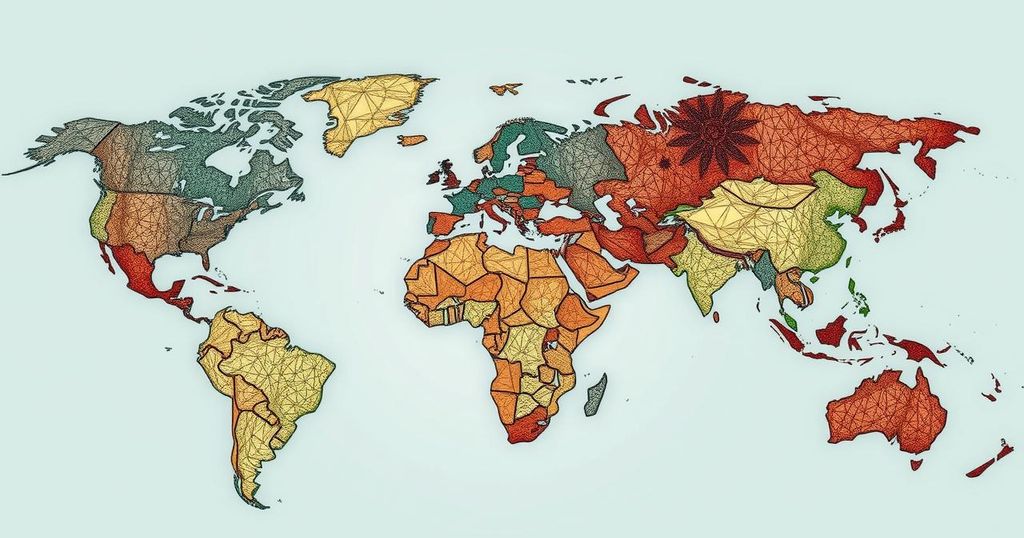Climate change
AFRICA, ASIA, AZERBAIJAN, BAKU, BOTSWANA, CLIMATE CHANGE, ENVIRONMENT, ENVIRONMENTAL PROTECTION, EUROPE, GREENHOUSE GAS EMISSIONS, HUMAN RIGHTS WATCH, KASIGAU CORRIDOR, KENYA, KENYA HUMAN RIGHTS COMMISSION, PARIS AGREEMENT, SCIENCE - BASED TARGETS INITIATIVE, SO, SOMO, UNITED NATIONS
Isaac Bennett
0 Comments
Examining the Human Rights Failures of the Voluntary Carbon Market
Research by SOMO and Human Rights Watch indicates that the voluntary carbon market, designed to offset emissions through community-based projects, often results in significant harms to these communities rather than benefits. Investigations reveal widespread human rights violations linked to major carbon projects, highlighting flaws in oversight and accountability within this market. Despite claims of integrity from certifying bodies like Verra, significant evidence points to a malpracticed system that neglects the protection of affected community rights.
The establishment of a new international carbon market at last month’s climate summit in Baku marks the end of nearly a decade’s negotiations. However, research by SOMO and Human Rights Watch underscores a grave concern: carbon projects intended to benefit communities often inflict severe harm instead. These projects, which issue carbon credits representing reduced or avoided greenhouse gas emissions, have revealed troubling patterns of human rights abuses.
Investigations over the past three years have highlighted deceptive practices linked to high-profile carbon offset projects, with instances of exaggerated climate benefits and fraudulent activities. Consequently, the Science-Based Targets Initiative ruled out offsetting as a valid method for achieving pollution goals. Despite attempts by the offsetting industry to assert high integrity through revised methodologies, significant human rights concerns remain unaddressed.
Notable cases arise from the Kasigau Corridor REDD+ Project in Kenya, where the Kenya Human Rights Commission reported long-standing complaints of harassment and abuse among staff, with limited accountability. Similarly, in Cambodia, Indigenous residents experienced forced evictions and harassment at the Southern Cardamom REDD+ Project, leading to significant distress among affected communities. Despite these serious issues, organizations like Verra, which certifies these projects, failed to conduct thorough investigations or hold perpetrators accountable.
Verra temporarily suspended both the Kasigau and Southern Cardamom projects but subsequently reinstated them upon claims that necessary actions were taken to address the complaints. However, the review process lacked transparency, excluding direct engagement with affected community members. Verra’s reluctance to require compensation for human rights breaches further exacerbates community vulnerabilities.
In promoting the role of carbon offsetting in global emissions reduction, significant evidence suggests that human rights violations are systematically overlooked. Such findings compel organizations to critically evaluate the integrity of initiatives involved in the voluntary carbon market and demand stronger mechanisms for accountability to safeguard vulnerable communities from further abuses arising from these projects.
The voluntary carbon market allows governments, companies, and individuals to purchase carbon credits that represent emissions reductions generated from various environmental projects, including tree planting and deforestation prevention. However, despite its intended purpose of aiding climate goals, the market has faced intense scrutiny for purportedly compromising human rights, often failing to adequately protect the communities it claims to support. Recent investigations have identified troubling patterns where the benefits promised do not materialize, and instead, local communities experience significant harm due to projects certified as ‘effective’ despite evidence to the contrary.
The findings from SOMO and Human Rights Watch emphasize the urgent need for reform within the voluntary carbon market. The systemic failures revealed by the cases at Kasigau and Southern Cardamom projects underscore a troubling trend where profit and market expansion take precedence over the protection of human rights. In light of these findings, it is imperative that governing bodies enforce stricter oversight and accountability measures to prevent further abuses in carbon offset projects, ensuring that vulnerable communities are safeguarded and genuinely benefit from environmental initiatives.
Original Source: www.aljazeera.com




Post Comment